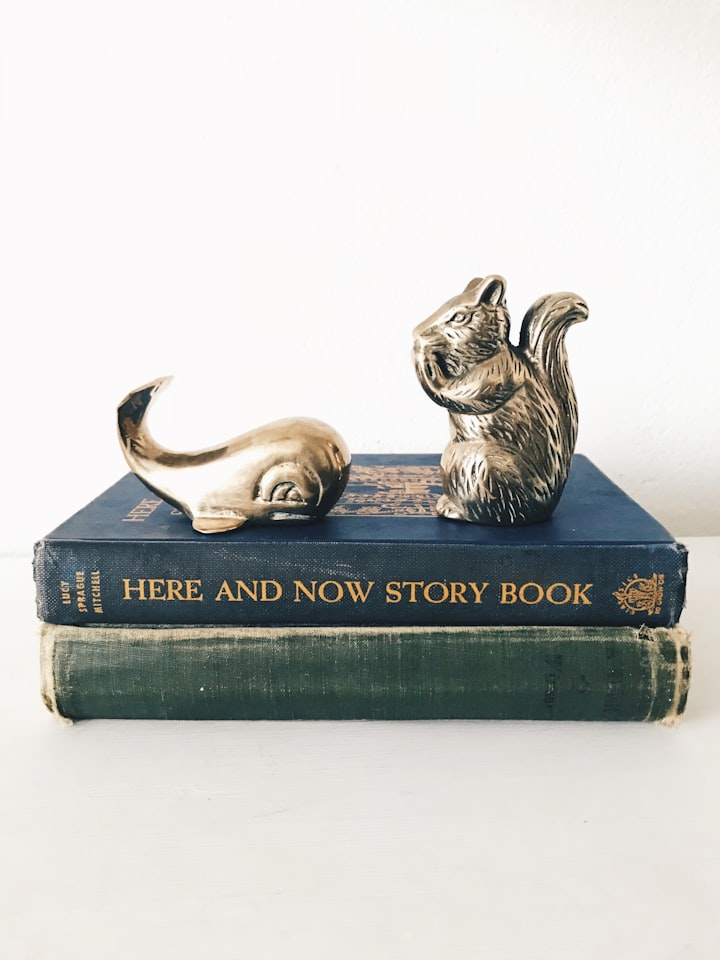Top Five Things I Learned About Writing Short Stories from Getting a Bachelors Degree in Creative Writing
Save yourself the tuition and read this article instead
How does the joke go? Who’s got two thumbs and an undergraduate degree in creative writing? This gal!
So you do not have to spend [amount redacted]and four years of your life doing the same, here are the biggest lessons I learned about writing effective short stories from my time sweating bullets in workshop classes (that harrowing thing where everyone critiques your story to shreds as you sit there and just take it) and listening to too many guys play The Wall on acoustic guitar (a college freshman rite of passage for many, I’m sure)…
You’re starting your story too soon
One common occurrence in my workshop classes was the professor announcing to the student writer that their story actually started on page three, or five, or nine. Not where they had started it on page one, sentence one. While my head imagines the prof tearing those pages off the staple in dramatic fashion, that didn’t happen. However, that sense of aghast on that student writer’s face did happen. After all, those pages were a lot of hard work. But the professor’s point still stood — a lot of times we start our short stories way too soon.
It’s not that hard to understand why this is a common mistake. Sometimes when you are writing early drafts of a short story, you have a lot of backstory to get out of your head. A lot of warming up to the story and the characters to do on a writerly level before you get a handle on the story overall.
Unlike novels, short stories need to get to the point. They are short. They cannot waste the first half or third or quarter of the story spinning its wheels before the story in earnest starts. (And in novels, anyway, you don’t want to front-load with backstory, but you do have more room to slow-burn into the plot.)
Hook the reader. Get to the inciting incident. Get to the heart of the story.
This doesn’t mean those first two/four/eight pages of content you cut were or are worthless. They helped give you a better idea of the story. Many of the details or implications from those cut pages can be woven into the rest of the story in a way that helps build depth but doesn’t pull the story to a dead stop to info dump.
It is easy to start a story too soon in an early draft. That’s okay. Just be able to recognize that during the redrafting and editing stages so that you can pivot and select the best place to start your story.
Don’t undercut your point by saying too much
Sometimes you’ve just got to drop the mic and walk away.
Saying too much can be as little as dragging on a sentence a few words too long to dragging the whole story a passage or scene too long. Don’t overstate your point. Don’t over-explain.
Many of us may have gotten into the habit of padding our word count for school papers. Don’t do that with fiction. Don’t find the wordiest way to say something. Many times writing “he collapsed” has more impact than “he collapsed on the ground.” Most people, when they collapse, you know, fall onto the ground or floor. If the collapse is sudden, the “on the ground” takes away from the sharp impact otherwise.
A short story implies a much bigger story
An overriding theme I learned from studying short stories, both reading them and writing them, is that these are pieces of fiction where the story that is actually on the page is implying a much bigger story. A story that isn’t there in the text, exactly, but in implications, hints, details, references… the subtext. Stories with characters who feel like they have a history — a life lived and a personality developed — before you are ever introduced to them on the page.
This concept is famously known as the Iceberg Theory. My fiction professor had transformed this metaphor into a boat. Same metaphorical concept: that there is a lot “under the surface” that you cannot be seen, but it is, in fact, supporting the part of the boat or iceberg you can see over the waterline. The part you see is the story itself.
I like to imagine stories as houses. The text of the story is what you see: the painted walls, the faucet in the sink, the lamp on the corner table. But there is all that hidden, out-of-sight stuff that makes a house function: the framing behind the drywall, the pipes, and wires running through the floors.
Again, just another metaphor to get to the same point. Short stories have a surface level: the text on the page. They also have a story hidden under the surface of the water or beneath the drywall: themes, subtext, the weird tension between characters that implies a complicated history, a weird tension that implies good things are or aren’t coming for our characters after the story ends, social commentary, and so on.
The mere fact that each character has lived a chunk of a lifetime before the story begins and that most of it (indeed, the vast majority of it), means to have any three-dimensional characters with nuance means implying who they were and what has happened to them before the opening lines of the story.
Failing to understand this concept ends in two possible not-too-stellar results. One, a flat, surface-level only story. Two, a story with everything over-explained.
How to achieve these “iceberg” stories is a whole other beast, but to understand this is the goal is the first step to achieving it.
Specific details matter
If a child character is obsessed with dinosaurs, how would you demonstrate that? By saying that everything in his bedroom was dinosaur-themed? Dinosaur sheets. Dinosaur lamp. Dinosaur curtains.
Yeah, that kid’s not obsessed with dinosaurs. If you ever met a kid who’s obsessed with dinosaurs, even as young as five, they know all the names. Not just t-rex and raptors, but triceratops and brachiosaurus.
This is an example of specific details that came up in my freshman year fiction workshop, and it has been glued inside my skull ever since.
Saying a kid has dinosaur pajamas is a detail. Saying a kid has triceratops pajamas is a specific detail that hits in a more powerful way.
When a character has an obsession or specialization, when they have a career or hobby, when they are supposed to be experts or talented in something, the details have to reflect it… specifically. And they make the story feel so much more alive and real and grounded. You don’t go into great, elaborate lengths to explain how a character is performing heart surgery or flying a fighter jet, but the small little things… terminology, jargon, doing the right things regarding whatever they are doing just dusted throughout the story overall… it’s like spices on food. Changes the game.
Only you can be the final judge
One thing I didn’t learn explicitly from class but learned implicitly from the experience of sitting through workshop classes, going to various author readings, listening to my peers, and hearing so many opinions on writing in general and my writing in specific… you have to learn how to be your own judge.
That does not mean never taking other people’s opinions into account. If you are planning to write for an audience, you have to take other people’s opinions into account. Beta readers and writing feedback groups can be very valuable to learning your craft and reviewing your work.
But anyone who’s shared their work with a writer’s group or an audience knows that there isn’t a unified response to stories. Readers like and dislike different things. Or they dislike the same thing, but their suggestions to fix it are extremely different.
Ultimately, you have to develop an ability to evaluate your own work: choosing what you want to write, how you want to write it, and determining if you succeed at that goal. Outside opinions can be helpful and even downright essential (I mean, you’re reading this aren’t you?) to developing your writing craft. However, at the end of the day, it comes down to you determining your vision and having a realistic ability to look at your work to see the good and the bad. The successes and the places you need to improve.
Wrapping it up
So I guess you can save yourself the college debt now and not have to get a degree in creative writing because I have reduced the five best lessons into this singular article. You’re welcome.
About the Creator
Margery P Bayne
Margery Bayne is a librarian by day and a writer by night from Baltimore, Maryland -- a published short story writer and an aspiring novelist. More about her and her writing can be found at www.margerybayne.com and on Medium @margerybayne.







Comments
There are no comments for this story
Be the first to respond and start the conversation.